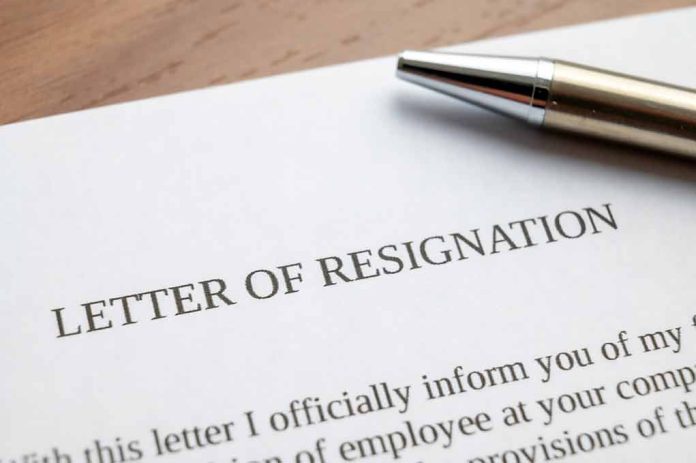
Steven Dettelbach, Director of the Bureau of Alcohol, Tobacco, Firearms and Explosives (ATF), will resign on January 18, 2025, just days before Donald Trump’s presidential inauguration, marking the end of a contentious tenure marked by legal defeats and policy controversies.
At a Glance
- Dettelbach’s resignation comes ahead of Trump’s inauguration, avoiding potential dismissal.
- His tenure saw numerous legal defeats for ATF gun control initiatives.
- Gun rights advocates welcome the resignation, criticizing Dettelbach’s leadership.
- The move raises questions about future ATF leadership and gun control policies.
Dettelbach’s Departure: A Strategic Move
Steven Dettelbach’s decision to step down as ATF Director on January 18, 2025, appears to be a strategic move to avoid dismissal by the incoming Trump administration. This resignation aligns with the typical transition between presidential administrations, as confirmed by ATF spokesperson Kristina Mastropasqua.
Dettelbach, who was President Biden’s second choice for the position after David Chipman’s failed confirmation, faced significant challenges during his tenure, particularly in implementing and defending various gun control measures.
🚨ATF Director Steve Dettelbach RESIGNS ahead of Trump’s return!🚨
Under his reign, the ATF attacked gun owners, crushed FFLs with “zero tolerance,” and pushed unconstitutional rules—only to get wrecked in court. His legacy? Massive legal failures.https://t.co/T1gn7uzVTF
— AmmoLand News (@AmmoLand) December 31, 2024
A Legacy of Legal Defeats
Under Dettelbach’s leadership, the ATF encountered numerous legal setbacks. The agency’s attempts to reclassify pistols with stabilizing devices as short-barreled rifles and redefine gun dealers were blocked by Federal District Courts. Additionally, the ATF’s effort to classify forced reset triggers as machine guns was rejected by the courts.
Perhaps most notably, the ATF faced three significant Supreme Court defeats during Dettelbach’s tenure, including the Bruen, Cargill, and Rahimi cases. These legal challenges underscored the difficulties in implementing stricter gun control measures within the current constitutional framework.
Controversial Policies and Industry Impact
Dettelbach’s time at the ATF was marked by the implementation of several controversial policies. The agency enacted a “zero tolerance” policy against gun dealers, resulting in a 500% increase in Federal Firearms License (FFL) revocations. This approach was praised by gun control advocates but heavily criticized by the firearms industry.
The ATF under Dettelbach also attempted to implement measures such as universal-style background checks and regulations on partially completed firearms, actions that gun rights advocates argued were beyond the agency’s authority and required congressional approval.
Reactions and Future Implications
Gun rights organizations, including the Firearms Policy Coalition and the Citizens Committee for the Right to Keep and Bear Arms (CCRKBA), have welcomed Dettelbach’s resignation. These groups have consistently criticized his leadership, accusing him of politicizing the ATF and overstepping the agency’s bounds.
As the ATF prepares for new leadership, questions arise about the future direction of gun control policies in the United States. President-elect Trump, who has opposed many of Biden’s gun policies, will have the opportunity to appoint a new ATF director. However, the confirmation process may prove challenging given the Senate’s composition.
The departure of Dettelbach ends the second period of a Senate-confirmed permanent director leading the ATF, potentially returning the agency to a state of leadership uncertainty. This transition comes at a critical time for gun policy in America, with ongoing debates about the balance between public safety and Second Amendment rights.
As the nation prepares for this leadership change at the ATF, stakeholders on all sides of the gun debate will be closely watching to see how it impacts federal firearms regulation and enforcement in the coming years.
Sources:
- Dettelbach Resigns as ATF Director with Record Number of Defeats
- ATF Confirms Director to Resign on January 18th
- Joe Biden’s ATF Director Tenders Resignation Ahead of Donald Trump’s Inauguration




